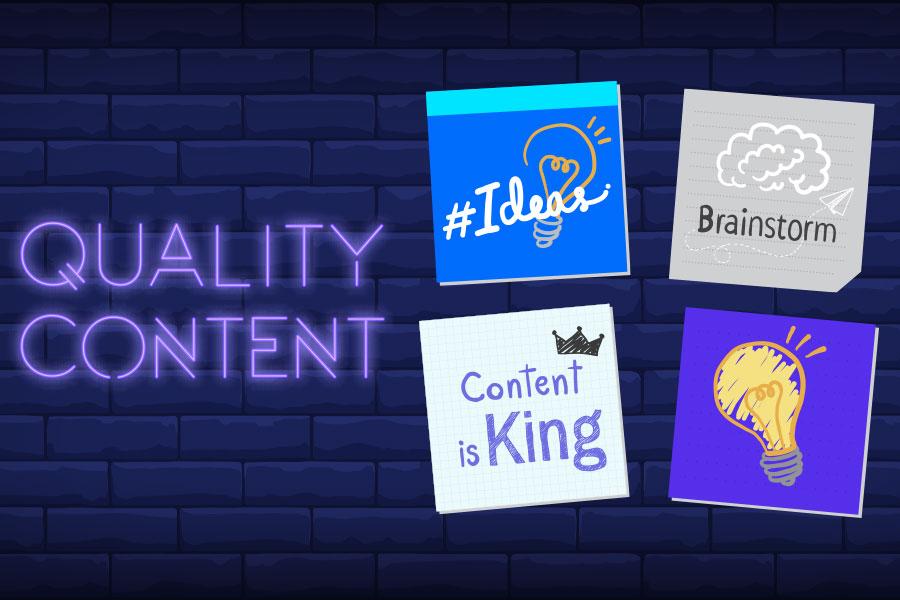How do CRM and Marketing Automation Work Better Together?
Pitting CRM against marketing automation is like measuring a tight end up to a quarterback.
There may be some overlap in functionality, but both complement each other, and neither can be an out-and-out replacement. Understanding the role and objective of these “sister solutions” can help you get the most out of each system.
In this blog, we’ll clear up the differences between CRM and marketing automation, the benefits each can bring, and how you can get the best of both worlds.
What is marketing automation?
Marketing automation is a suite of tools that help you analyze, automate, and streamline workflows and marketing tasks. You can follow prospect activities such as website views, blog reads, email opens, and form fills.
These tools schedule and track email campaigns and mass communications.
Benefits
Key benefits of marketing automation include:
- Improved customer engagement: Segment prospects based on past interactions or their interests and preferences.
- Lead scoring system: Identify the most promising leads with greater conversion chances.
- In-depth analytics: Reflect campaign performance and deliver insights.
- Automated triggers: Send emails when prospects are most interested in a product or service or schedule email series in a “drip” campaign.
Do You Need a Marketing Automation System?
Invest in a marketing automation platform if you check off the following points:
- You can’t manage your customer list manually.
- You want to quickly promote carefully crafted content to the right target audience.
- You want to feed more leads to sales, but your customer list is too small.
Marketing Automation is a valuable business tool for streamlining marketing processes, enhancing customer engagement, and driving revenue growth. Utilizing marketing automation services can lead to increased productivity, improved ROI, and a competitive advantage in the market.
What is CRM?

CRM is a tool that helps you handle customer relationships, manage contact and sales, and improve agent productivity. You can store information about contacts, including their purchase records, phone conversations, and records of inbound emails.
Most importantly, a CRM lets you optimize one-on-one client interactions, enhancing customer satisfaction and increasing sales.
Benefits
- Internal alerts: Remind sales reps about call schedules, account renewals, and customer birthdays or anniversaries, prompting them to contact customers at the optimal time.
- Integrated workflows: Automate time-consuming everyday tasks to save time.
- Social media sync: Recognize the channels that drive the most traffic and know what people say about your business.
- Targeted promotional content: Increase conversion rates and build customer trust.
Do you need a CRM solution?
Most likely, your business needs to invest in a robust CRM platform if:
- You can no longer handle all your leads using a spreadsheet and need technical help to track customer data.
- You’re receiving reports about unsatisfactory customer experiences. Systematically reach out to unhappy customers and resolve their issues using omnichannel support.
- You’re losing track of customers during their journeys. Use pipeline management to track each customer throughout the sales pipeline and optimize customer experience.
CRM, or Customer Relationship Management, is a strategic approach businesses use to manage and analyze customer interactions. SaaS automation tools enable companies to streamline sales, marketing, and customer service processes, enhancing customer satisfaction and loyalty.
Let’s break through your revenue hurdles
We find your primary growth blockers, build expert-led strategies, and provide custom data-driven solutions to help you hit your revenue goals.
CRM vs. Marketing Automation
Understanding the distinctions between Customer Relationship Management (CRM) and Marketing Automation is crucial for optimizing your company's operations and growth. Let's delve into the comprehensive guide that will unravel the unique benefits marketing automation and CRM bring and how each can revolutionize your business strategies.
What are the key differences?
Drilling things back to the basics, marketing automation helps users manage digital campaigns, email marketing, lead tracking and scoring, and landing pages. You can check out our list of marketing automation features for a full rundown.
CRM covers the entire sales pipeline process, from individual emails to lead status tracking, task management, opportunity tracking, and pipeline reporting. Get an in-depth view of our must-have CRM features here.
CRM drives and increases sales, while marketing automation helps generate and nurture leads. We’ve outlined the differences in three major factors below:
- Target Audience: A CRM platform broadly caters to sales reps, providing them with tools to manage customer relationships and improve their performance and productivity. A marketing automation (MA) system helps team members focus on marketing, specifically in B2B SaaS industries, to generate qualified leads and improve conversion rate optimization .
- Purpose: A marketing automation tool enables businesses to automate marketing campaigns using predefined conditions and triggers, making it ideal for short purchase cycles and optimizing marketing efforts in SaaS industries. On the other hand, a CRM helps businesses manage sales processes, assign tasks to sales reps, and maintain an organized database to streamline customer relationship management.
- Goal: The primary goal of a CRM solution is to manage customer relationships, improve sales reps' performance and productivity, and ultimately contribute to business growth. On the other hand, a marketing automation platform helps businesses measure marketing's contribution to the overall ROI, generate qualified leads, and improve workflows between sales and marketing teams, particularly in SaaS marketing environments.
Do you need both?
There’s no easy “yes” or “no” answer to this question, as it depends on your customers' stage in the sales funnel.
Syncing data between both platforms is the secret third option to access all your data through one solution.
If you want a perfect combination of marketing automation and CRM without investing in two separate systems, you should consider integration or choosing a system that offers functionalities of both solutions, such as marketing automation in CRM.
How to integrate CRM with marketing automation software?
Integrating CRM and MA solutions helps improve the customer experience and increase your business’s efficiency, leading to improved ROI. Most importantly, it helps maximize their benefits by combining their strengths. Using them together, you can:
- Assign lead scores
- Nurture prospect relationships
- Glean analytical reports and track progress
- Enable sales reps to visualize lead journeys
- Communicate consistently and seamlessly
Understand the Integration Process
Here are a few tricks to help you align the two platforms:
- Personalized Messaging: Engage with the target audience better and increase the chances of lead conversions through personalized messages when using a CRM and an MA system.
- Quick Lead Scoring: Assigning scores to leads ensures increased conversions. Using both platforms, it’ll be easier to identify users who are most likely to convert.
- Duplicate Elimination: Using the platforms in tandem means easy access to centralized data, which can lead to overlaps and accidental duplicate tasks. Monitor the systems closely to ensure no duplicate data.
- Robust Planning: Design and follow a plan to identify, implement, and address changes to your marketing and sales efforts, making them cost-effective and efficient.
Examples of CRM and marketing automation
Finding a solution with CRM and marketing automation capabilities is like getting a glimpse of the Loch Ness monster. However, unlike the Scottish legend, platforms with the functionalities of both solutions do exist. Here are a few examples:
- HubSpot Sales Hub: Combine the power of a unified CRM with sales automation processes to eliminate data silos and increase efficiency.
- Salesforce Sales Cloud: Salesforce’s enterprise suite and Lightning builder provide access to limited marketing automation functionalities.
- Active Campaign: This MA solution doubles as a marketing-oriented CRM with lead qualification, contact scoring, and sales task management.
- Zendesk Sell: Add a marketing automation module to real-time insights from your sales, marketing, and customer support departments.
Integrating CRM and marketing automation can provide a holistic approach to managing customer relationships and marketing strategies. By combining these tools, businesses can optimize their marketing efforts and enhance customer engagement through personalized and targeted campaigns.
Conclusion
Choosing CRM over marketing automation can feel like picking a favorite sibling. With CRM automation, businesses can combine CRM and marketing automation functionalities to streamline processes, enhance customer relationships, and boost marketing efforts for greater efficiency and success in the digital landscape.
Nailing down your needs goes a long way toward investing in the right solution. Schedule a free call to understand the need for CRM and marketing automation for direct insights on actionable steps to take in your software selection process.
When comparing CRM vs. marketing automation, would you prefer a system with combined functionalities, or is it better to opt for two different solutions? Let us know.
Drive Exceptional Growth without an In-House Marketing Team
We drive business growth by optimizing every inbound channel to attract and convert high-quality clients for you
Share with Friends
Outshine Your Competition Faster
Drive measurable growth through comprehensive, data-driven digital marketing strategies.
Talk to ExpertsSubscribe to our newsletter
Get fresh stories, case studies, and
advice
from successful creators and industry experts.

Subscribe now

Outshine Your Competition Faster
Drive measurable growth through comprehensive, data-driven digital marketing strategies.
Talk to Experts






